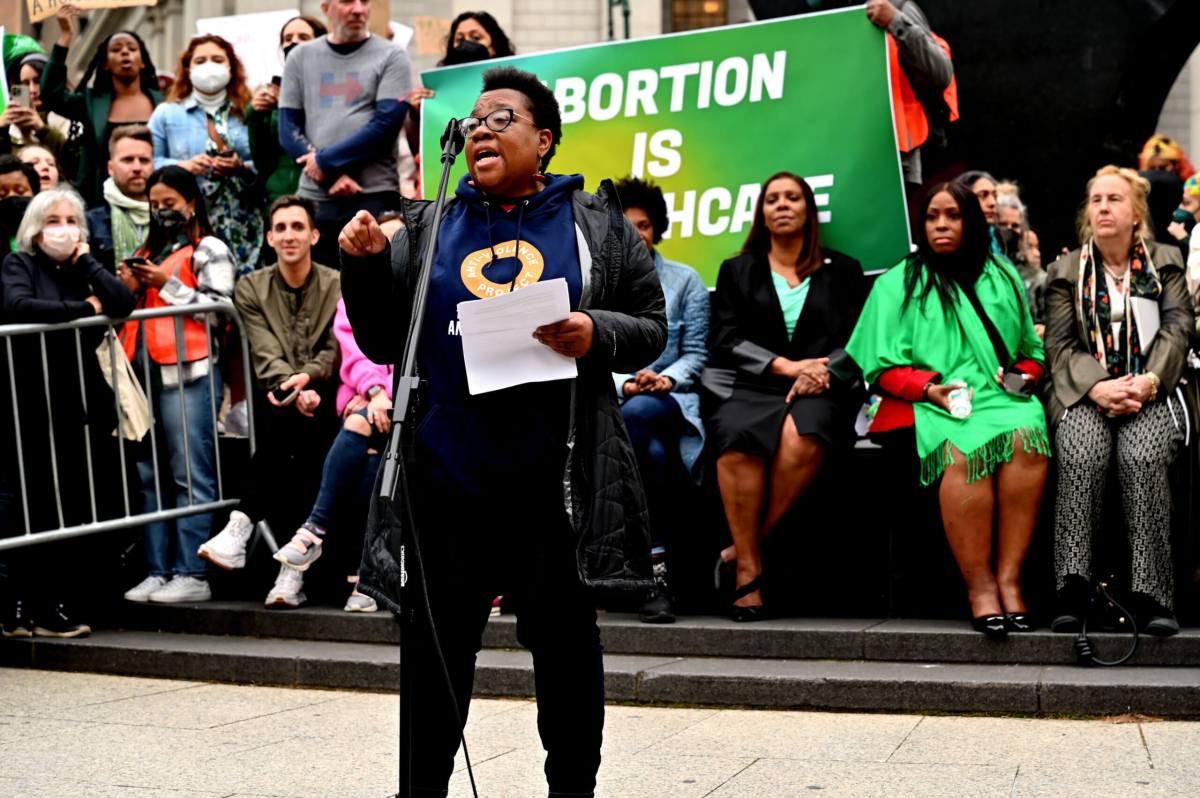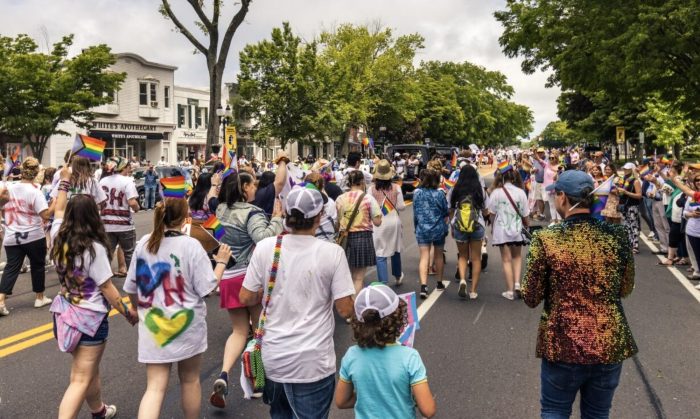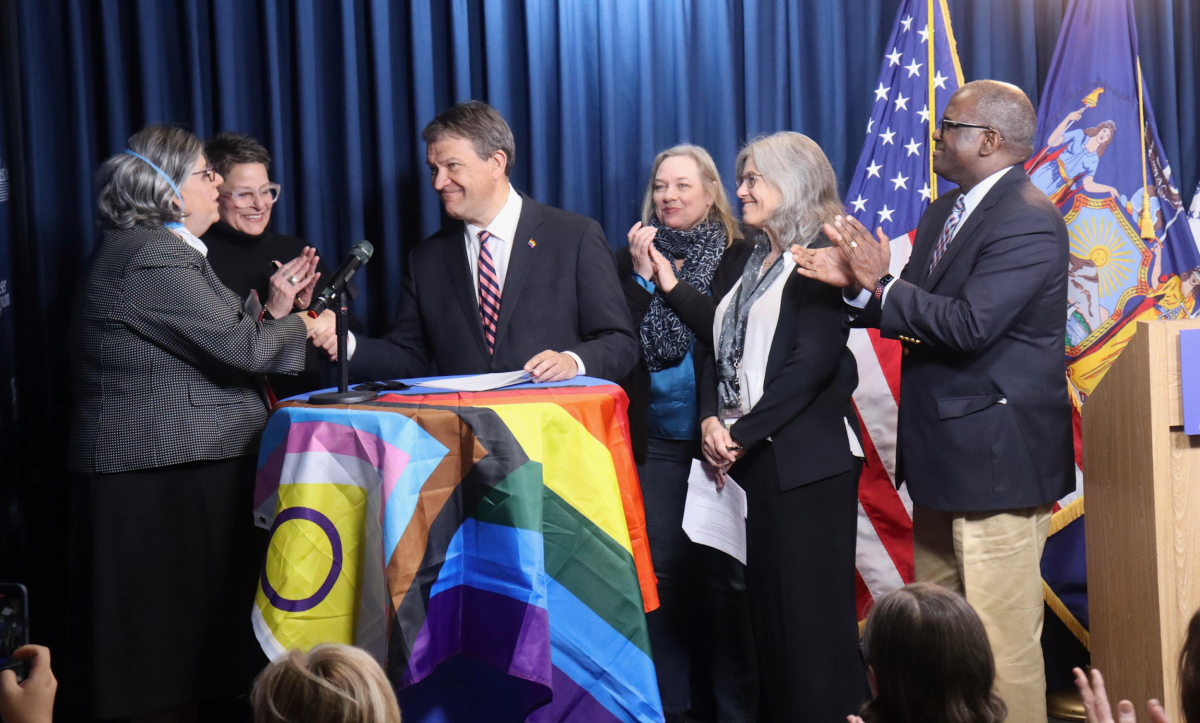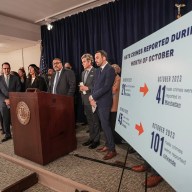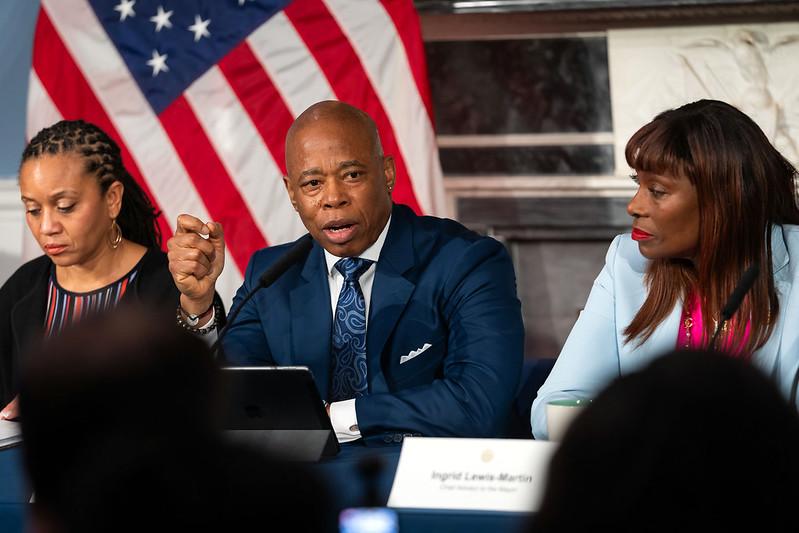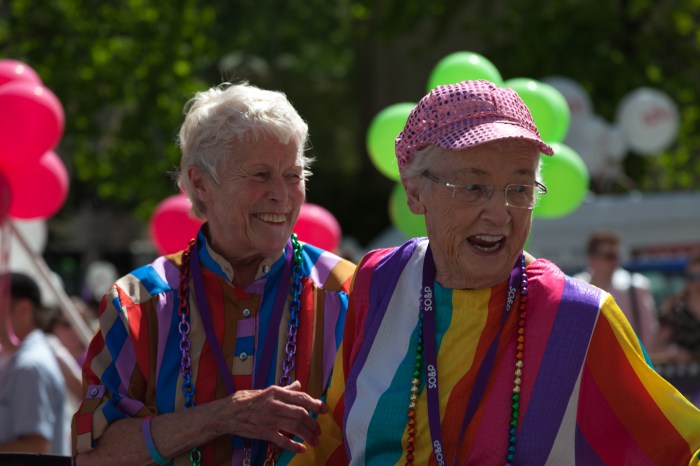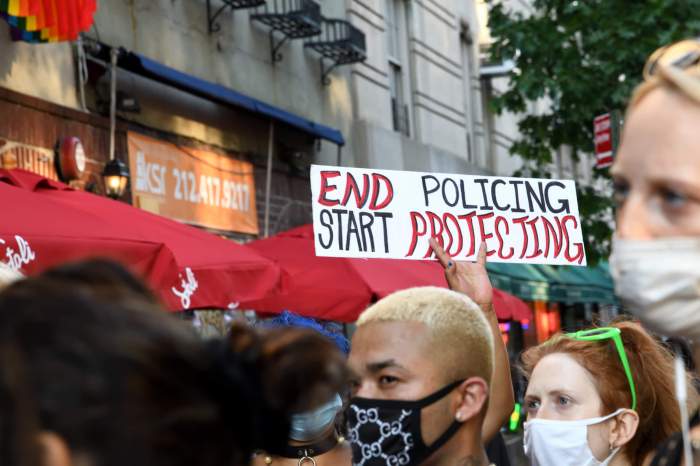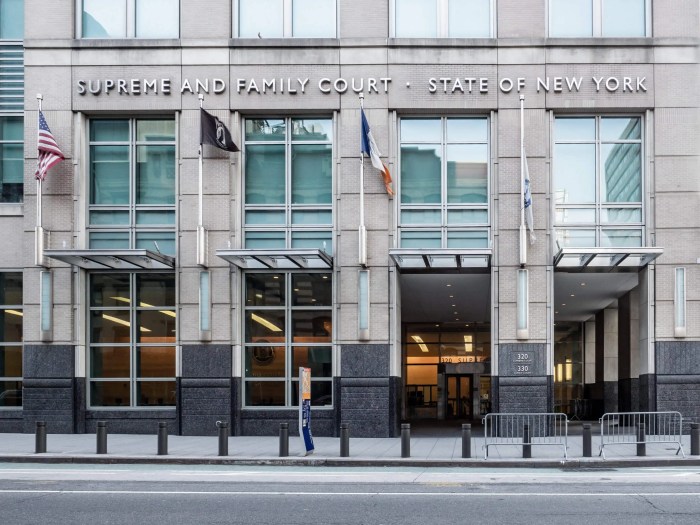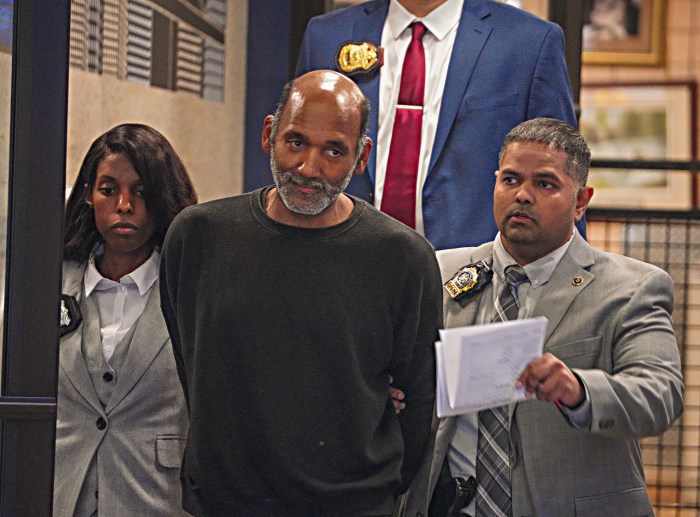The non-profit New York City Anti-Violence Project (AVP), which has supported LGBTQ and HIV-affected survivors of violence since 1980, fired its executive director last month in a move that sparked a public back-and-forth between the ousted leader and AVP’s board over fundraising, board changes, and other issues.
Beverly Tillery, who led AVP for more than eight years, was already planning her departure from the organization after she announced in February that she would be leaving at the end of July. But she was fired on April 25 amid allegations by the board that the organization is in financial distress, prompting Tillery to publish a long Facebook post to air her grievances with the board and denounce what she described as an “unjustified termination” and “a breach of my contract.”
AVP has a longstanding reputation for serving as a resource for people who have experienced violence — especially in the LGBTQ community. The organization’s work was recently spotlighted on a wider scale in the HBO docuseries “Last Call: When a Serial Killer Stalked Queer New York,” which showcased AVP’s on-the-ground work in response to a pattern of murders targeting gay men. The group also supports the loved ones of people impacted by violence, including the family of the late Kawaski Trawick — a Black gay man who was killed by the NYPD in his Bronx home in 2019. Among other offerings, AVP has a 24-hour hotline staffed by trained volunteers and professionals.
Now, though, a dramatic turn of events is threatening to upend the 44-year-old organization, which has paused fundraising while its board determines how to move forward.
“The staff and I are stunned and deeply concerned about the future of the organization in the hands of the current board,” Tillery said in the Facebook post. “In recent weeks, the board has taken steps to jeopardize the health of the organization and most recently have threatened to close down the organization. They claim the organization is in a financial crisis, when in reality, we have been experiencing the regular, cyclical cashflow challenges that come with delays in payments of city funding.”
The board of directors — without naming Tillery — fired back in a lengthy statement posted on AVP’s website, saying, “Contrary to inaccurate information that has been shared, the board remains committed to keeping AVP alive and its programs operational.”
“In recent weeks, it had become apparent that the board needed to implement measures to ensure AVP’s financial viability,” the board noted in the written statement on April 29. “Over the past two years, AVP’s expenses have significantly outstripped income, having lost $1M in fiscal year 2022-23, and another $1.1M this fiscal year (through the eight-month period ending February 29, 2024).”
AVP’s tax filings from 2021 show the organization brought in $4.45 million but spent $4.69 million and had $4.28 million in assets; in 2022, AVP reported $4.72 million in revenue, $4.66 million in expenses, and $4.51 million in assets.
In an interview with Gay City News, Tillery continued to insist that AVP is not facing a financial crisis. She said the organization is not in debt, pays bills on time, and has secured contracts covering 70% of next year’s budget — on top of $600,000 in city funds owed to the organization for completed work.
“It is true that the organization had a significant deficit last year that was brought on from a number of reasons,” Tillery said, pointing to AVP’s decision to make some “significant investments” and address infrastructure needs. “Some of those were completely driven — almost demanded — by the board, including adding to communication, development and administration staff.”
Those investments were made, Tillery said, with expectations that fundraising would improve — but in the end, she said that never happened after the board scrapped an annual gala as well as other events intended to raise money for the organization.
“All of that [fundraising] has been shut off right now, so it’s hard to believe what the board is saying about wanting to preserve the organization when all their actions are showing they’re stopping people from raising money for the organization,” Tillery said.
Tillery said she was recently in touch with board members about the process of transitioning to a new executive director upon her planned departure over the summer. However, she said in recent months the board had “not been taking steps to move towards the transition.” Instead, according to Tillery, the board stopped fundraising and started discussing ways to dissolve the organization.
Tillery’s Facebook post described sweeping changes to the board as of late. She said four board members have stepped down, including the only Latinx and Black board members. As of the afternoon of May 3, AVP’s website still listed Tillery as the executive director overseeing a staff of more than two dozen employees. The board of directors is chaired by Stephanie Blackwood and features a total of six members, according to AVP’s website.
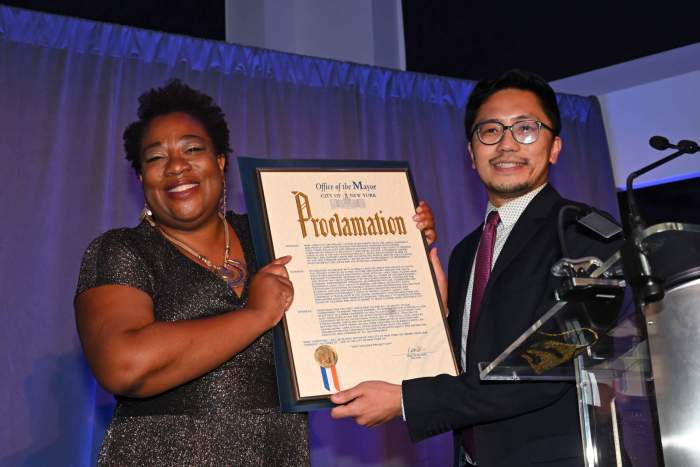
In a statement to Gay City News on May 3, AVP’s board did not answer questions seeking clarification about changes to the board or the identity of the interim director who stepped in after Tillery’s termination. The board confirmed that fundraising was paused for the time being, but rejected Tillery’s points about the circumstances of her departure and challenged her assessment of the organization’s financial position.
“The information disseminated by individuals outside of the New York City Anti-Violence Project’s board of directors is inaccurate, untrue, and misrepresents the facts,” the board told Gay City News. “It is AVP’s volunteer board’s sole intention to keep the organization and its programs operational to ensure that its life-saving services continue to be available to the LGBTQ+ and HIV-affected communities. The decision to part ways with Beverly Tillery was difficult and not done in haste. The board’s action was consistent with the terms of Ms. Tillery’s Transition Agreement and did not breach her contract.”
AVP’s board told Gay City News that the organization only had enough money to pay staff for two more pay cycles — an assertion Tillery denied, saying it “was never true, but it was unnecessarily alarming and traumatizing staff.”
“Due to the financial shortages, Ms. Tillery laid off four employees in March, prompting the union to issue a statement decrying Ms. Tillery’s poor financial planning for the organization and lack of transparency about the true financial situation of AVP,” the board said. “By the end of April, the organization’s reserve fund had been heavily leveraged to cover payroll.”
The board further said the organization was on track to go bankrupt if it continued to operate the same way — even if the government paid out all the outstanding contracts.
“These attempts to discredit the board and the organization are divisive and only harm the clients and programs the organization serves,” the board told Gay City News. “It is the board’s hope, and its current mission, to course correct AVP’s operations in order to continue serving the community for another 40 years.”
Reflecting on her tenure at AVP, Tillery told Gay City News she is most proud of the way in which the organization took further steps to focus on those most impacted by violence by embedding them into their work and starting leadership programs, including a trans and gender non-conforming leadership academy.
Tillery said she felt compelled to speak out following her termination to stand up for other Black women in leadership. There were times, she said, when she heard board members say they did not trust the financial numbers “as if we were making up numbers in our bank account.”
“We have witnessed time and time again these kinds of things happen to Black women and other women of color,” Tillery said. “And often, people sort of set an expectation that people will just be quiet because they will be worried about their reputations, and they won’t want to say anything in public. I felt it was time that we needed to have a conversation in the community about what is happening.”
The board said it will release its 2022-23 fiscal year audit within the coming days, which they said “reinforces the Board’s decision, allowing for transparency in the organization’s fiscal viability.”

